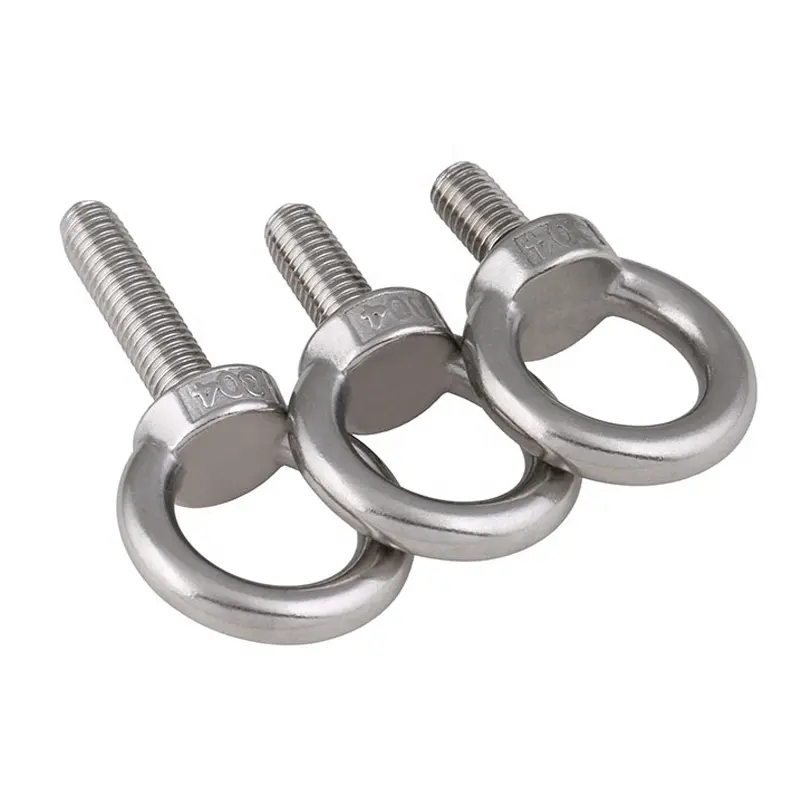News
Jul . 27, 2024 17:00 Back to list
Top Marine Turnbuckle Suppliers for Quality and Reliable Rigging Solutions in the Industry
Marine Turnbuckle Suppliers A Guide to Choosing the Right Partner
In the maritime industry, ensuring the stability and safety of structures is paramount. Turnbuckles are vital components that help maintain tension in cables, ropes, and wires, playing a crucial role in the integrity of marine applications. Whether it’s for sailing vessels, large ships, offshore platforms, or docks, the quality of turnbuckles can make a significant difference. As a result, selecting the right marine turnbuckle supplier is essential for anyone involved in marine construction or maintenance.
Understanding Marine Turnbuckles
Turnbuckles are mechanical devices used for adjusting the tension or length of cables. Typically, they consist of a metal frame with two threaded ends and a connecting rod that is adjustable. This allows operators to increase or decrease the tension in rigging systems. In marine applications, these fittings are often exposed to corrosive elements, such as saltwater, demanding that they are not only strong but also highly resistant to corrosion.
Factors to Consider When Choosing a Supplier
1. Material Quality One of the first things to look at is the materials used in the turnbuckles. Marine-grade stainless steel (such as 316 grade) is preferred due to its corrosion resistance. Suppliers should provide specifications on the metals used, ensuring they meet industry standards for marine applications.
2. Product Range A reputable supplier will offer a wide range of turnbuckles, including different sizes, shapes, and finishes. This variety allows customers to select the right turnbuckle for their specific application, whether it’s for rigging a sailboat or supporting a bridge.
marine turnbuckle suppliers

3. Reputation and Experience Researching a supplier’s reputation in the industry can save time and money. Suppliers with extensive experience will likely have a better understanding of the unique challenges faced in marine environments. Customer testimonials and case studies can offer insight into their reliability and quality.
4. Certifications Ensure that the supplier adheres to relevant certifications such as ISO, ASTM, or other industry-specific standards. Compliance with these standards reflects a commitment to quality and safety, which is crucial in high-stakes marine applications.
5. Customer Service Good customer service is vital, particularly when it comes to addressing specific requirements, providing technical support, or handling potential disputes. Suppliers who prioritize customer relationships often have better after-sales support and can assist with product selection and troubleshooting.
6. Pricing and Bulk Discounts While price should not be the only consideration, it definitely plays a role in decision-making. It’s beneficial to compare pricing among suppliers, but also watch for bulk discounts or other pricing incentives for large orders. Always ensure that lower prices do not compromise quality.
7. Delivery and Logistics Turnaround time is especially important in the marine industry where projects are often on tight schedules. Evaluate suppliers based on their ability to meet deadlines and provide timely delivery of products. Understanding their logistics capability can help avoid delays.
Conclusion
Choosing the right marine turnbuckle supplier can have a crucial impact on the safety and efficiency of marine operations. By considering factors such as material quality, product range, reputation, certifications, customer service, pricing, and delivery, you can make an informed decision that aligns with your specific needs. Investing time in selecting a reliable supplier can yield significant benefits in terms of product longevity and operational efficiency, ultimately ensuring the success of your maritime projects.
